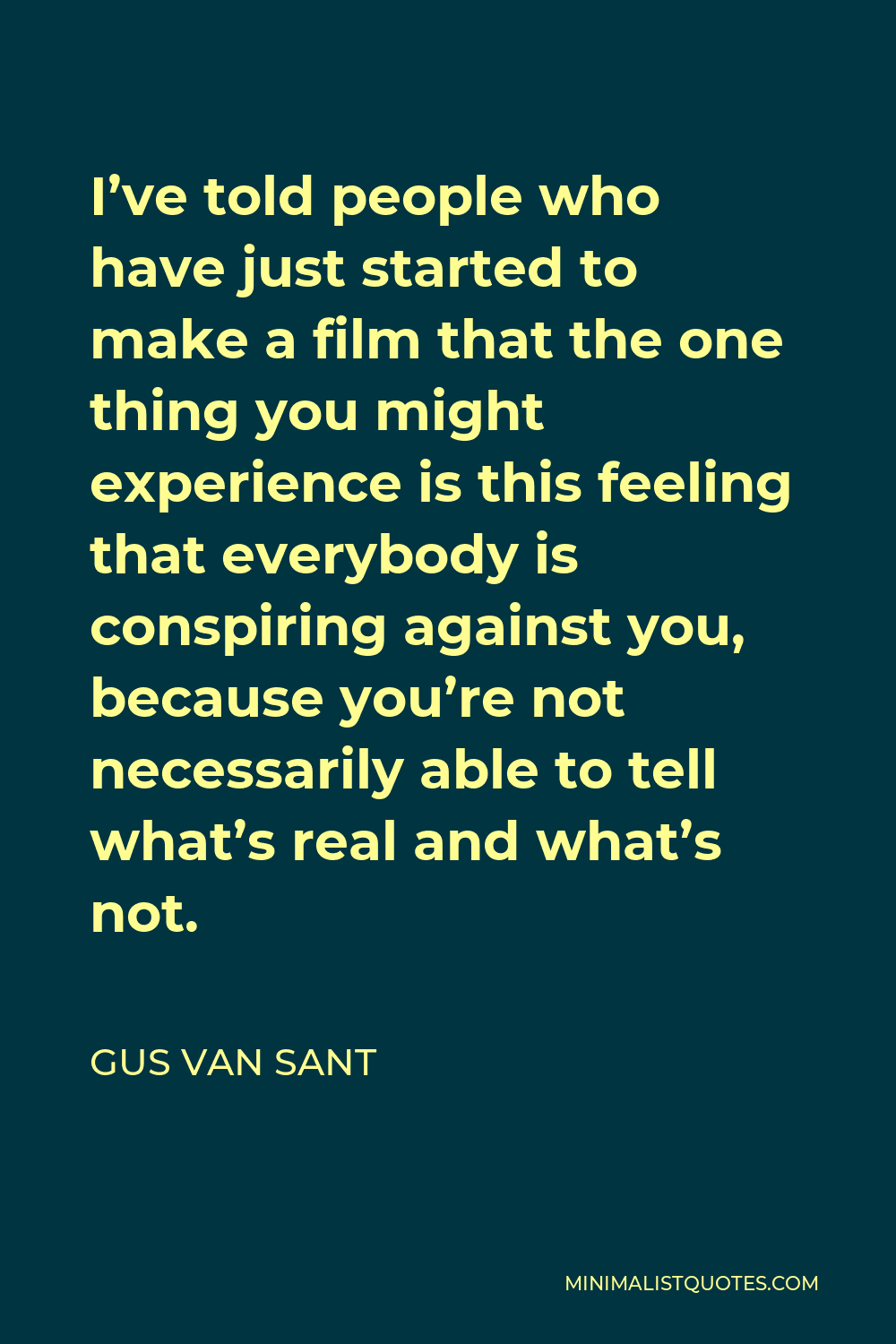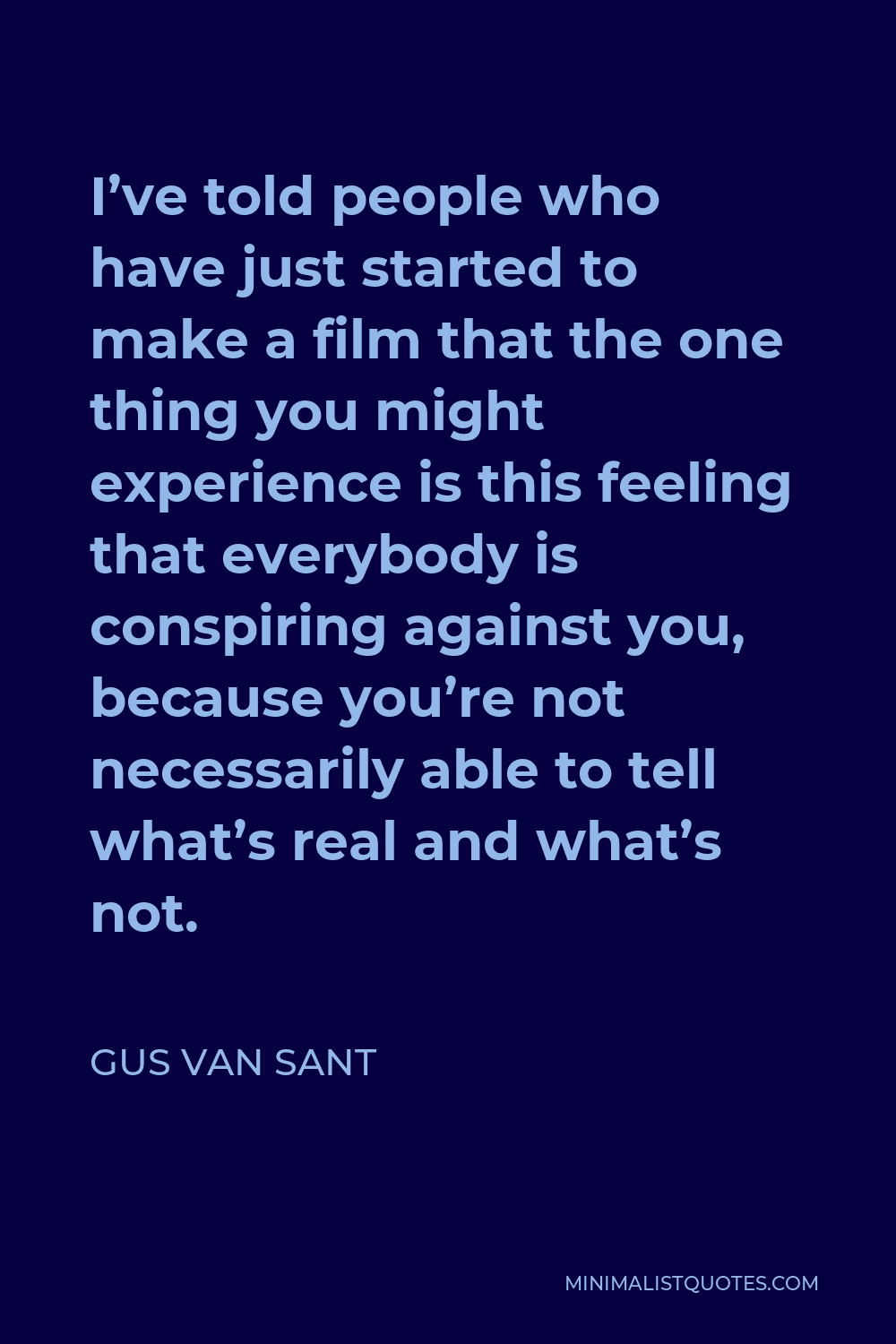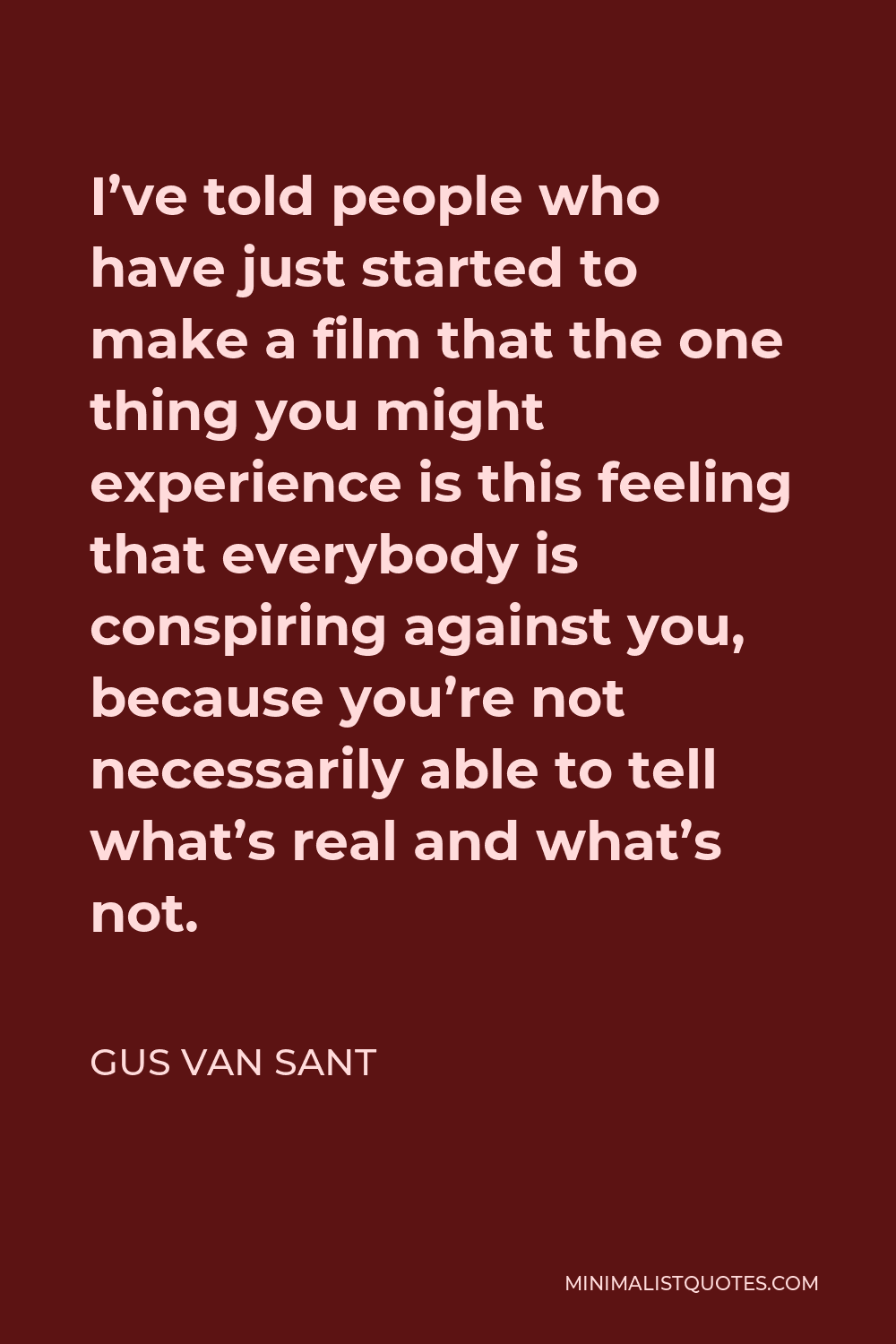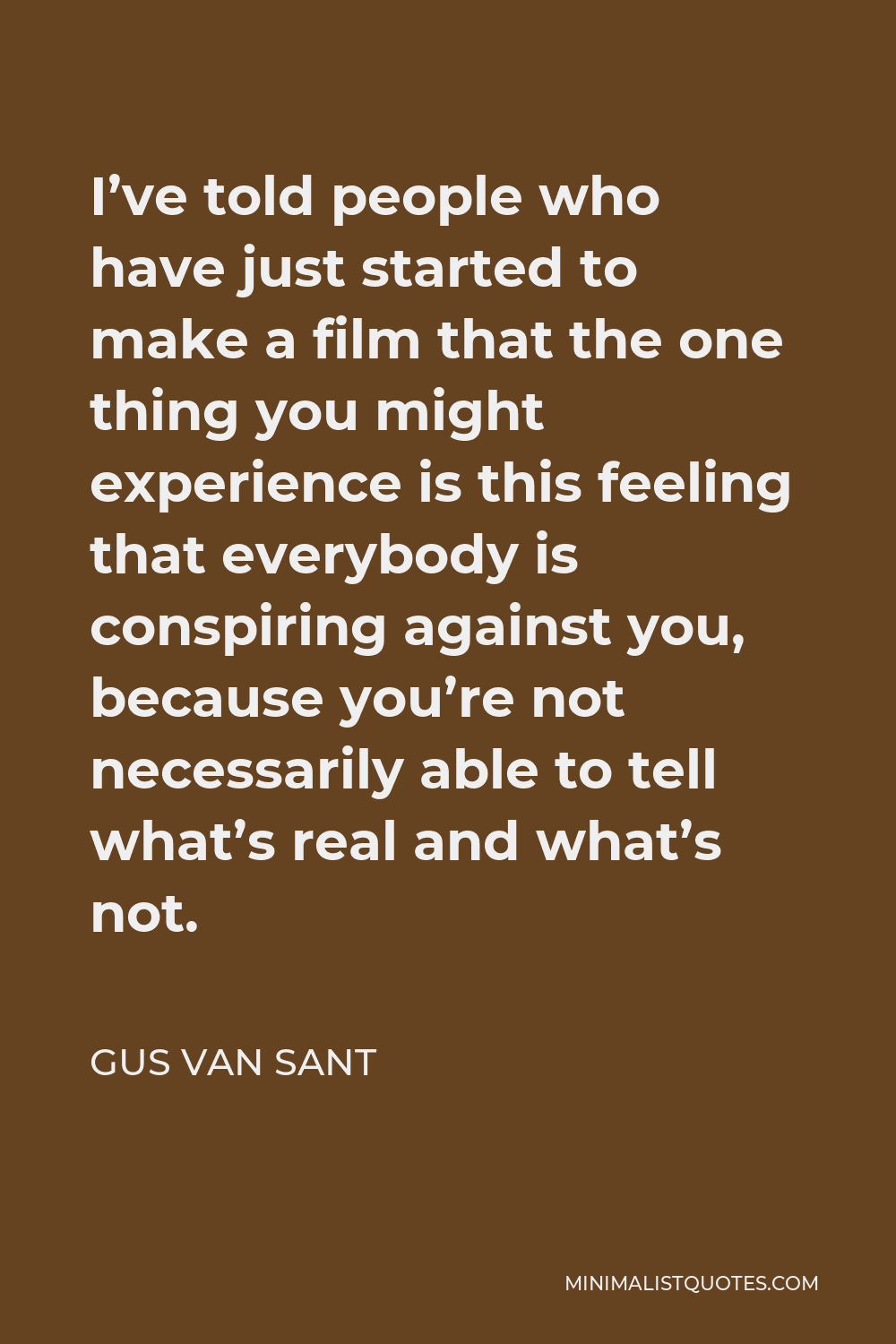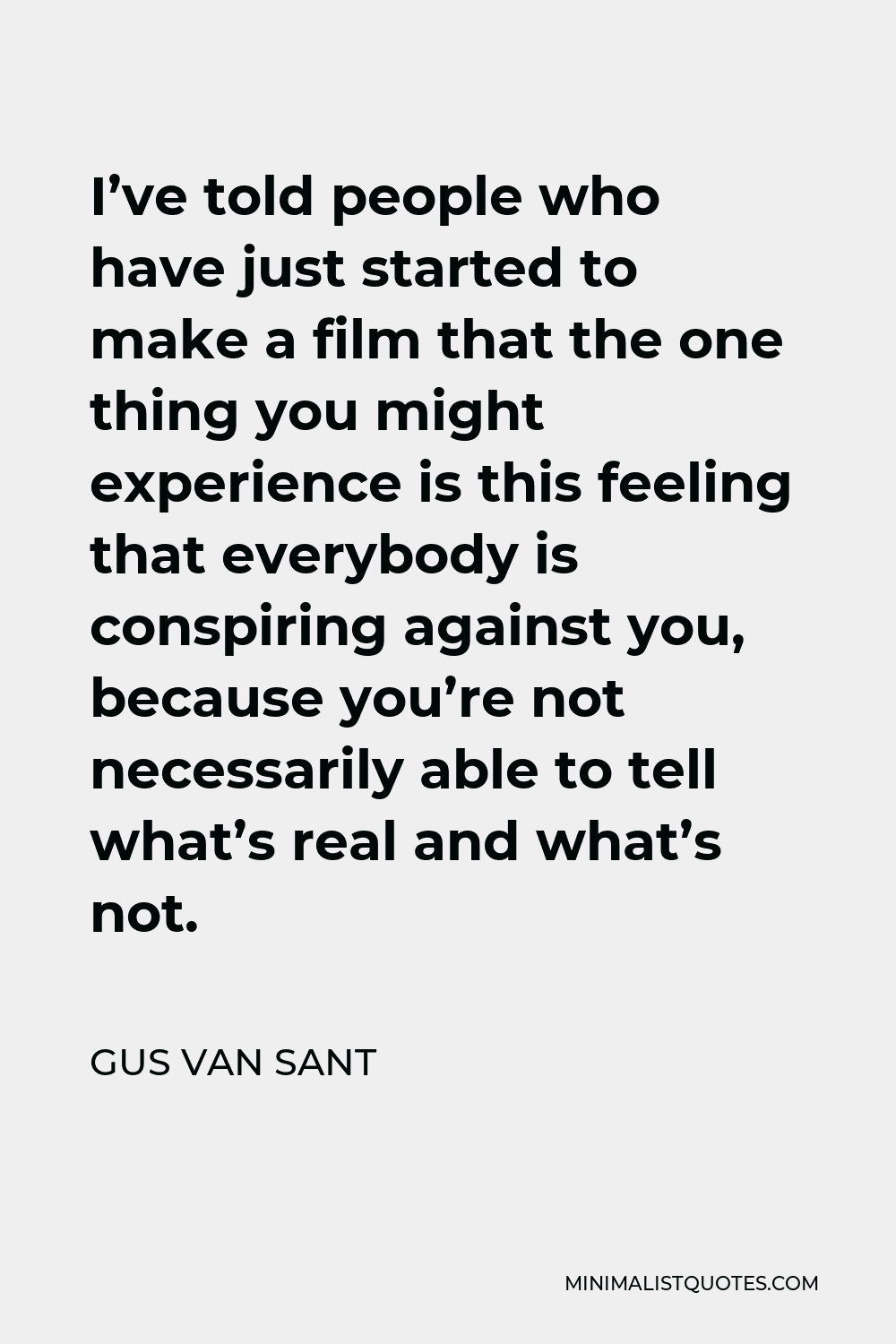And Later I Thought, I Can’t Think How Anyone Can Become a Director Without Learning the Craft of Cinematography.
GUS VAN SANTI’ve told people who have just started to make a film that the one thing you might experience is this feeling that everybody is conspiring against you, because you’re not necessarily able to tell what’s real and what’s not.
More Gus Van Sant Quotes
-





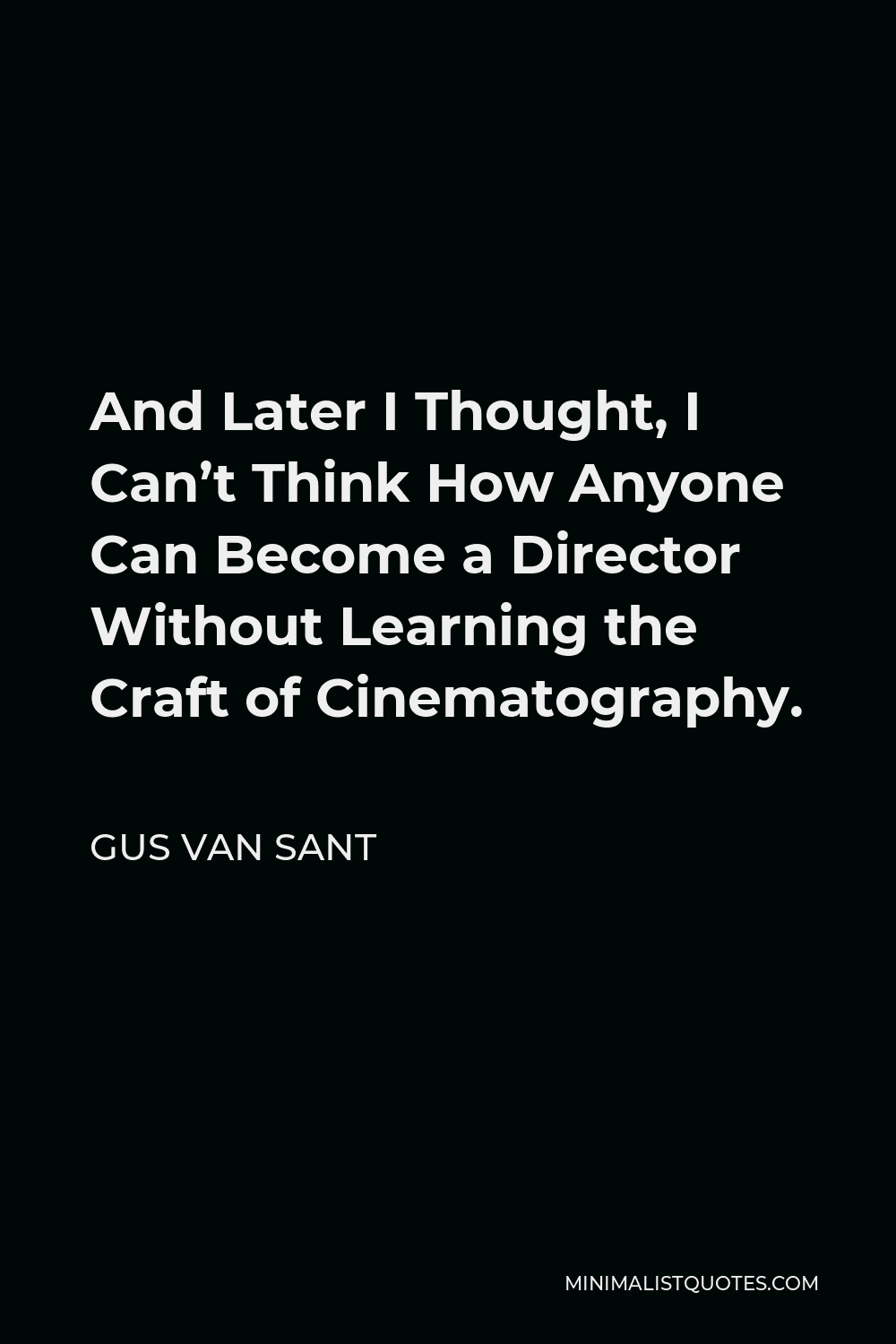
-





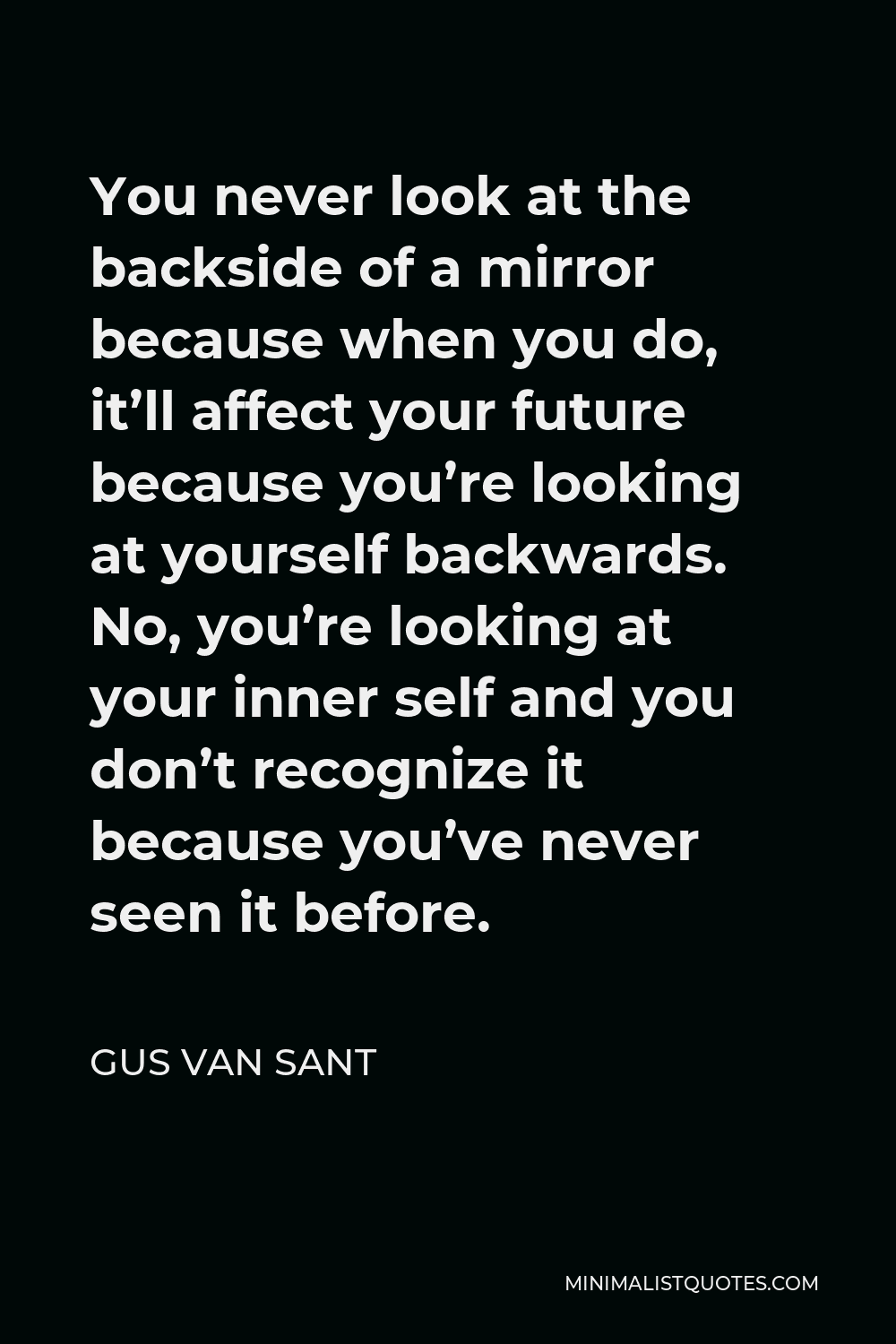
You never look at the backside of a mirror because when you do, it’ll affect your future because you’re looking at yourself backwards. No, you’re looking at your inner self and you don’t recognize it because you’ve never seen it before.
GUS VAN SANT -





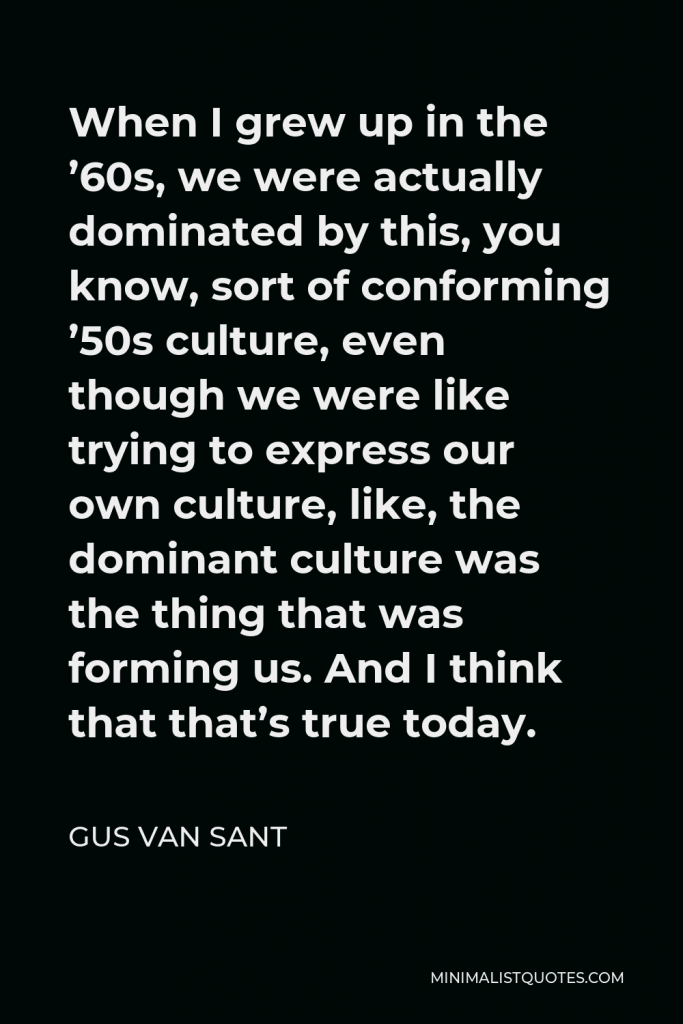

When I grew up in the ’60s, we were actually dominated by this, you know, sort of conforming ’50s culture, even though we were like trying to express our own culture, like, the dominant culture was the thing that was forming us. And I think that that’s true today.
GUS VAN SANT -





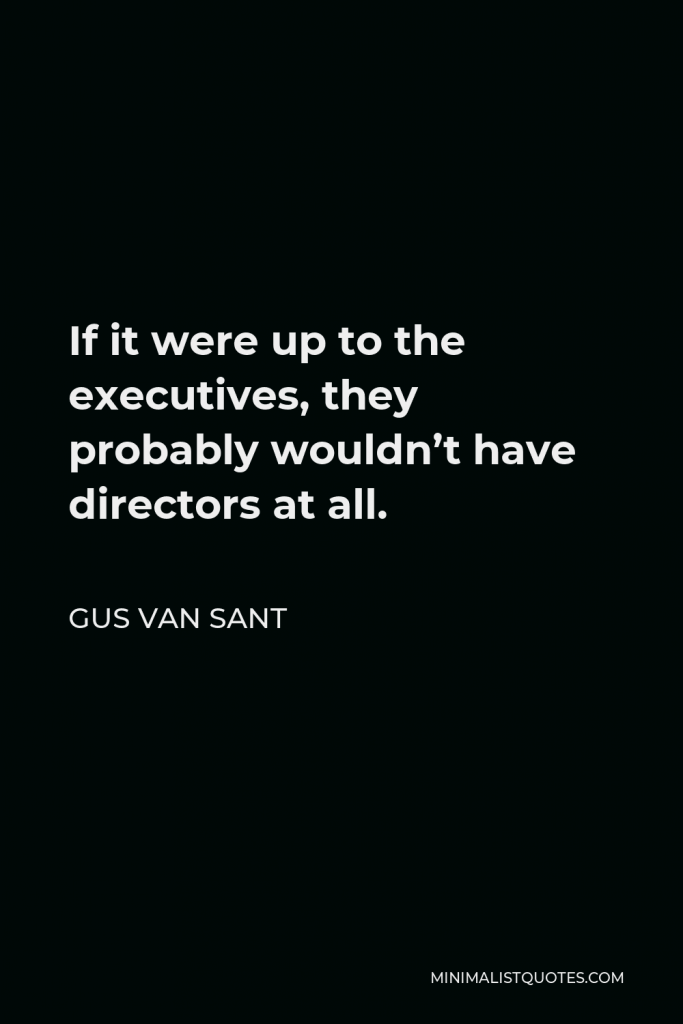

If it were up to the executives, they probably wouldn’t have directors at all.
GUS VAN SANT -





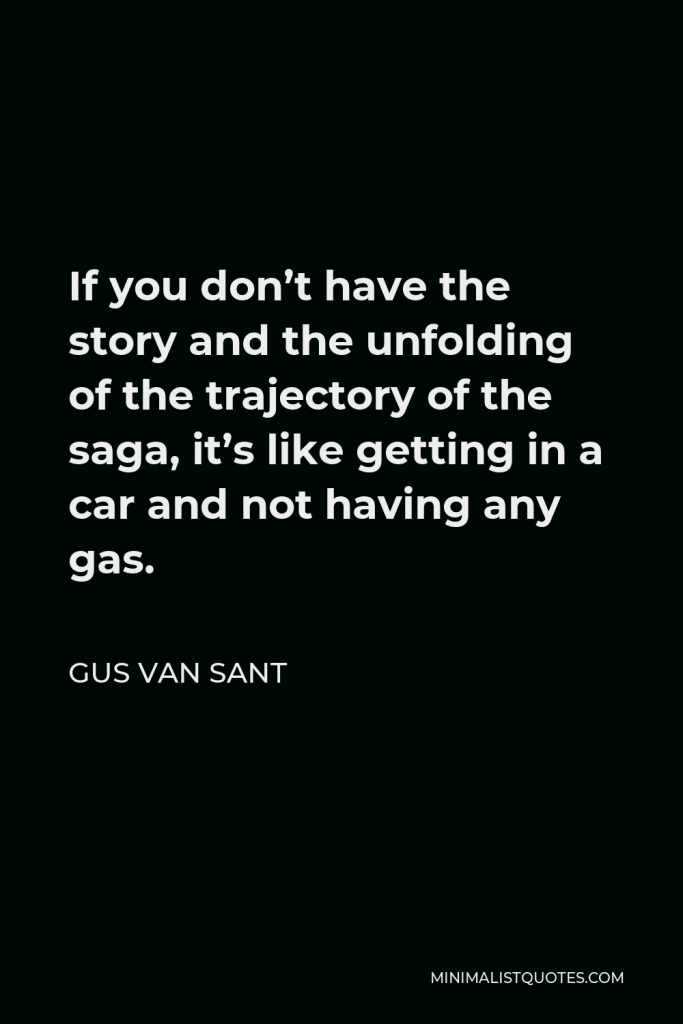

If you don’t have the story and the unfolding of the trajectory of the saga, it’s like getting in a car and not having any gas.
GUS VAN SANT -





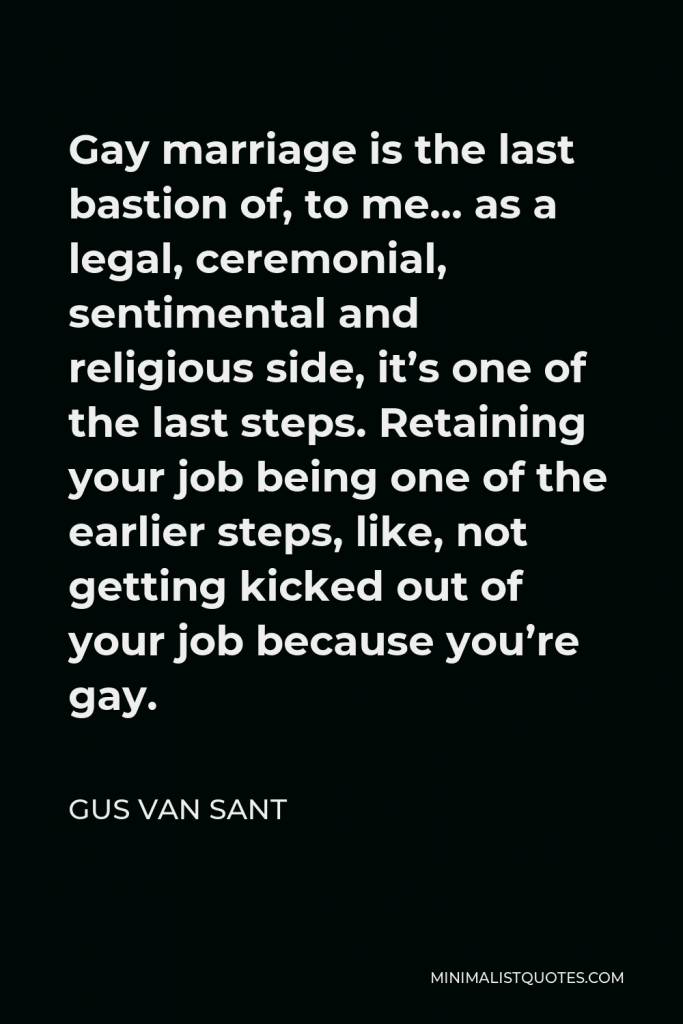

Gay marriage is the last bastion of, to me… as a legal, ceremonial, sentimental and religious side, it’s one of the last steps. Retaining your job being one of the earlier steps, like, not getting kicked out of your job because you’re gay.
GUS VAN SANT -





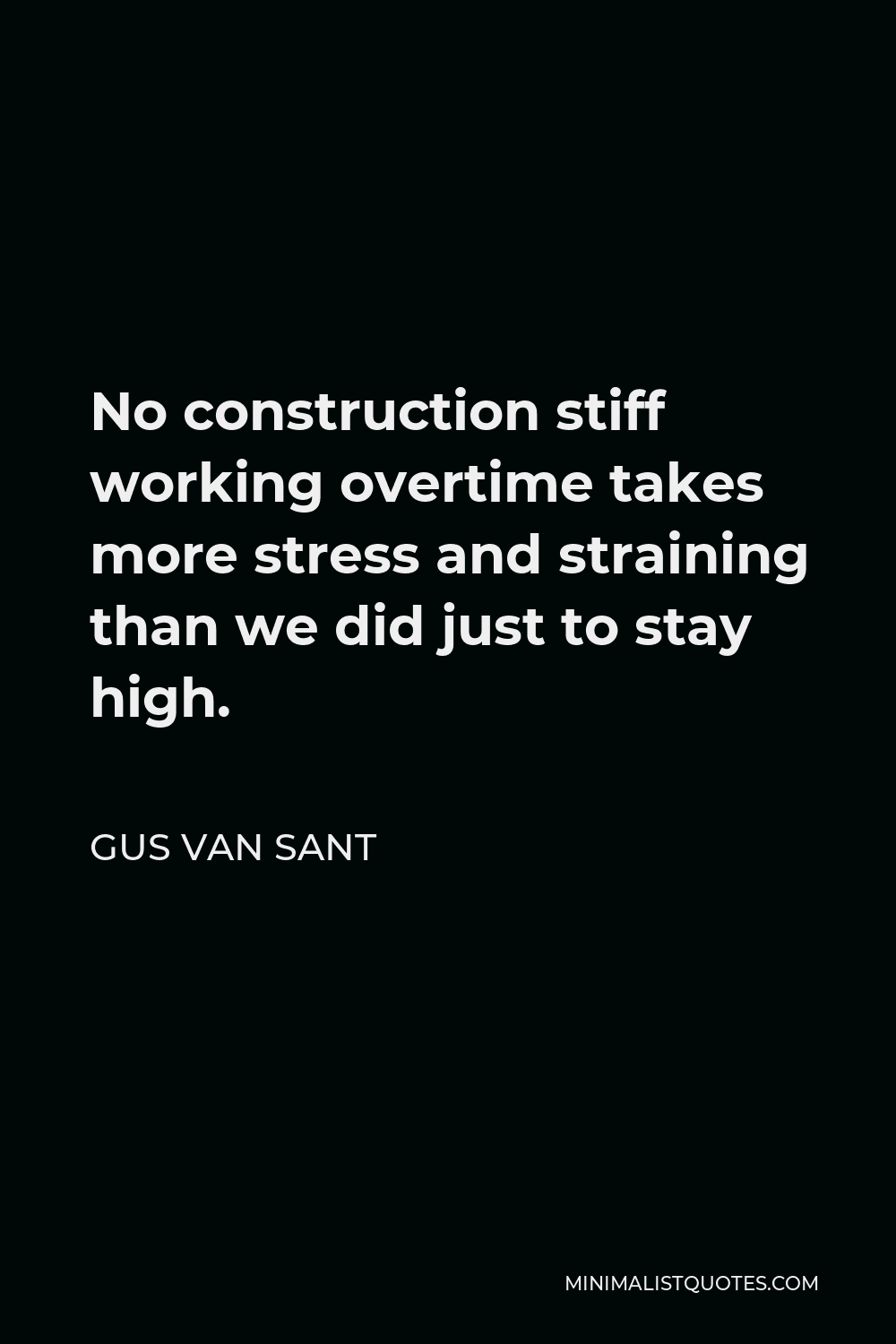
No construction stiff working overtime takes more stress and straining than we did just to stay high.
GUS VAN SANT -





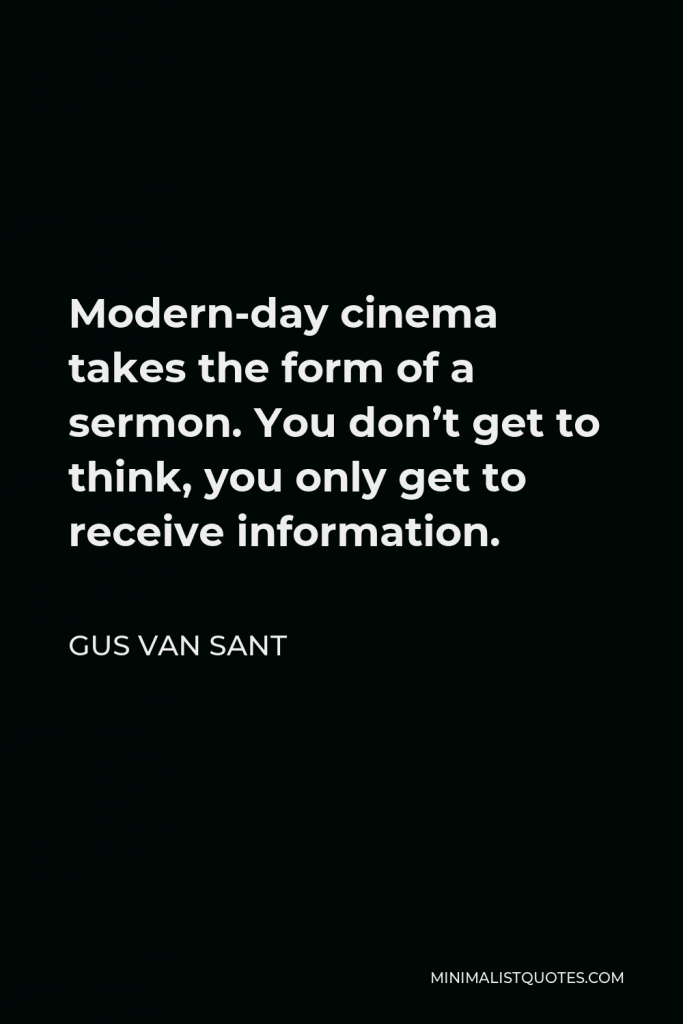

Modern-day cinema takes the form of a sermon. You don’t get to think, you only get to receive information.
GUS VAN SANT -





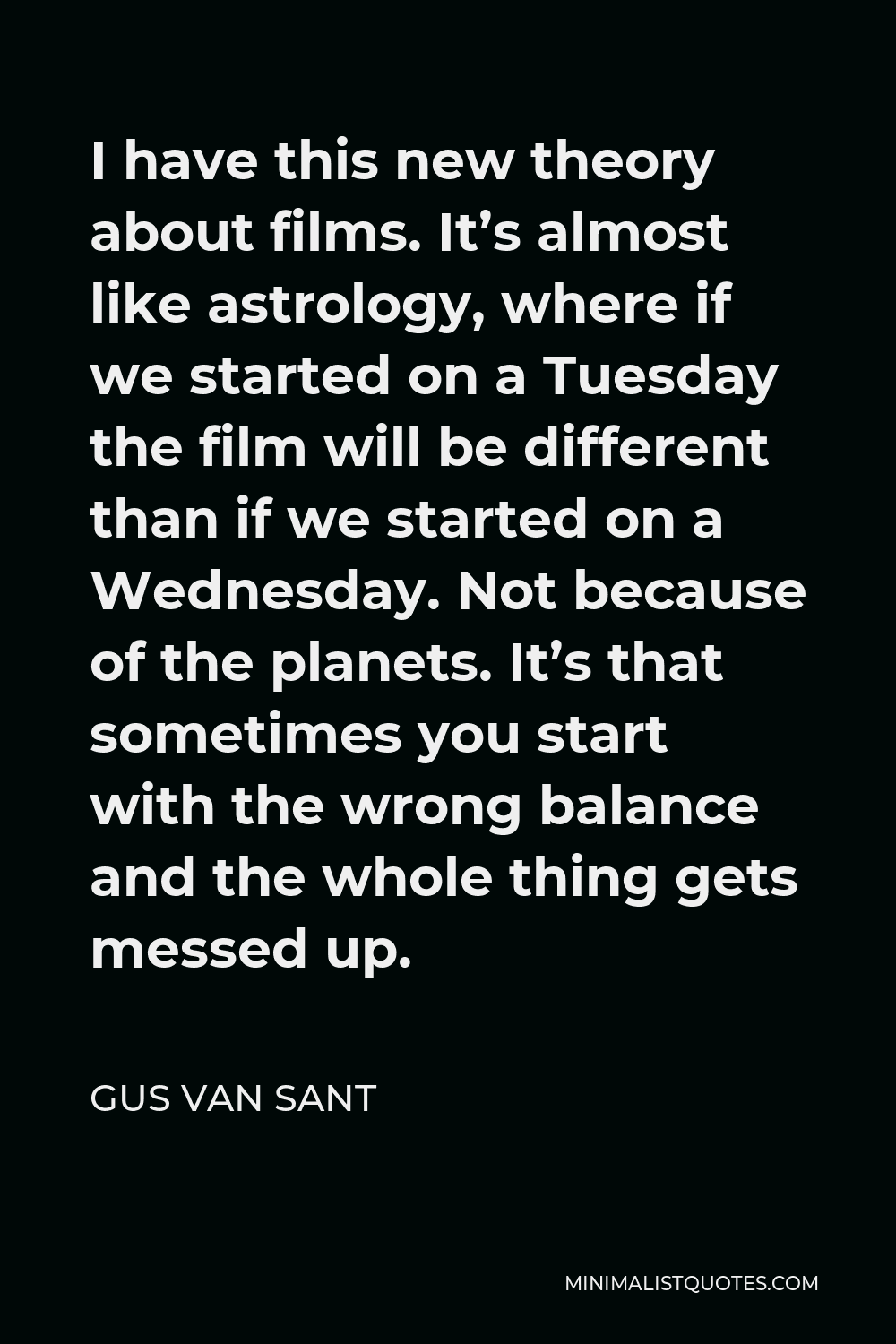
I have this new theory about films. It’s almost like astrology, where if we started on a Tuesday the film will be different than if we started on a Wednesday. Not because of the planets. It’s that sometimes you start with the wrong balance and the whole thing gets messed up.
GUS VAN SANT -





![Gus Van Sant Quote - I’m going in a really weird I-don’t-know-where direction, but I prefer anything [different] from how standardized filmmaking has become.](https://minimalistquotes.com/images/im-going-in-a-really-weird-i-dont-know-where-direc.jpg)
I’m going in a really weird I-don’t-know-where direction, but I prefer anything [different] from how standardized filmmaking has become.
GUS VAN SANT -





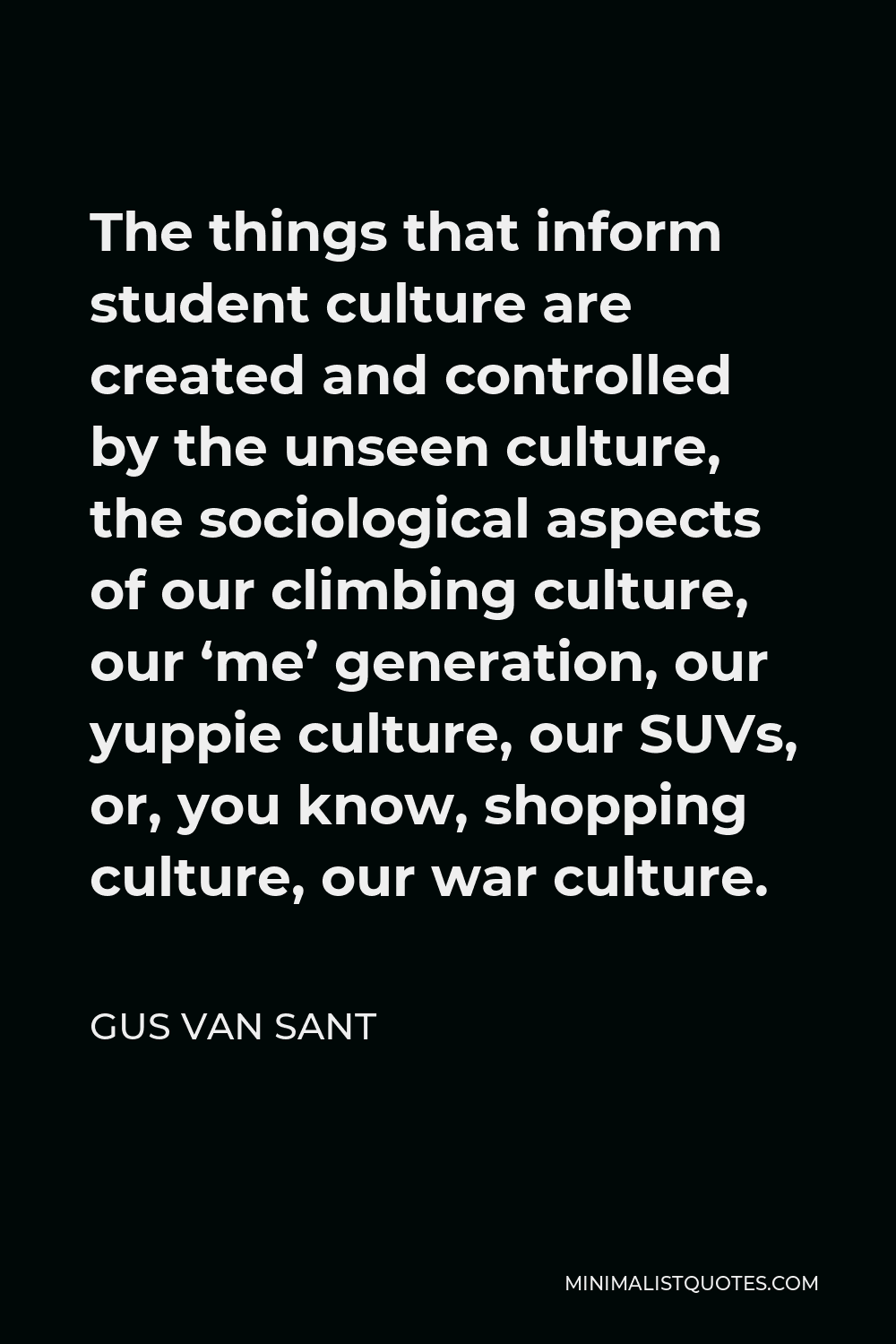
The things that inform student culture are created and controlled by the unseen culture, the sociological aspects of our climbing culture, our ‘me’ generation, our yuppie culture, our SUVs, or, you know, shopping culture, our war culture.
GUS VAN SANT -





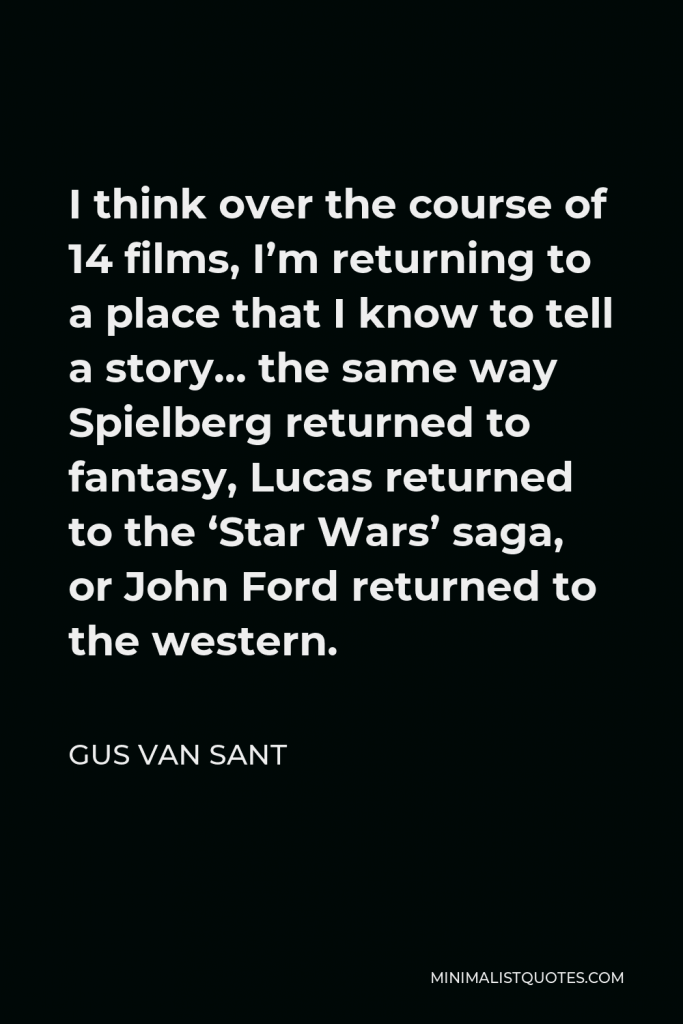

I think over the course of 14 films, I’m returning to a place that I know to tell a story… the same way Spielberg returned to fantasy, Lucas returned to the ‘Star Wars’ saga, or John Ford returned to the western.
GUS VAN SANT -





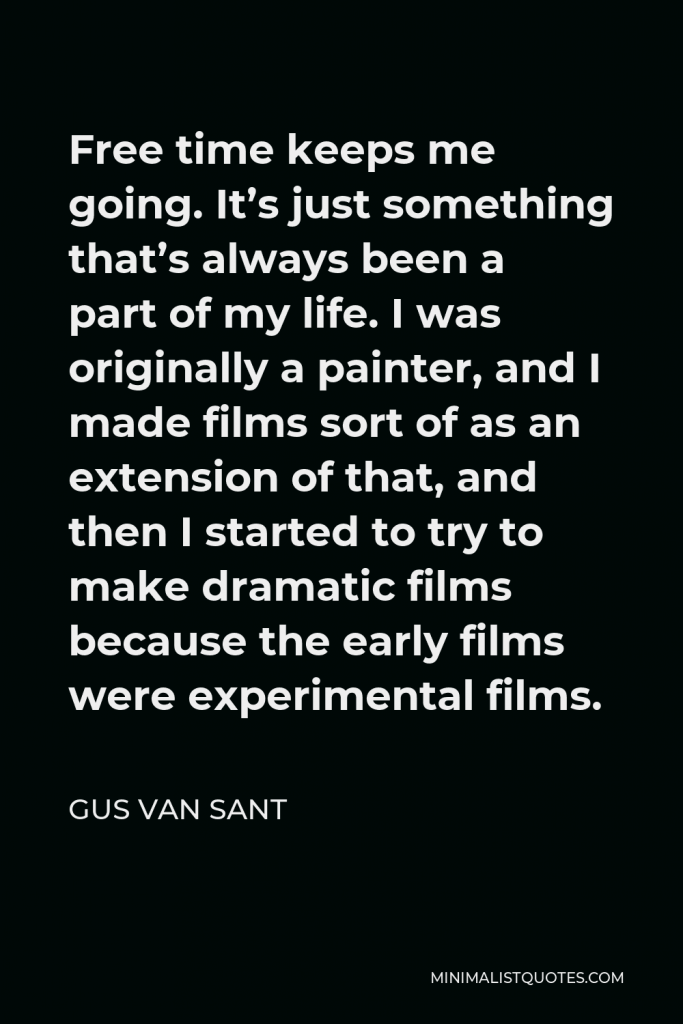

Free time keeps me going. It’s just something that’s always been a part of my life. I was originally a painter, and I made films sort of as an extension of that, and then I started to try to make dramatic films because the early films were experimental films.
GUS VAN SANT -





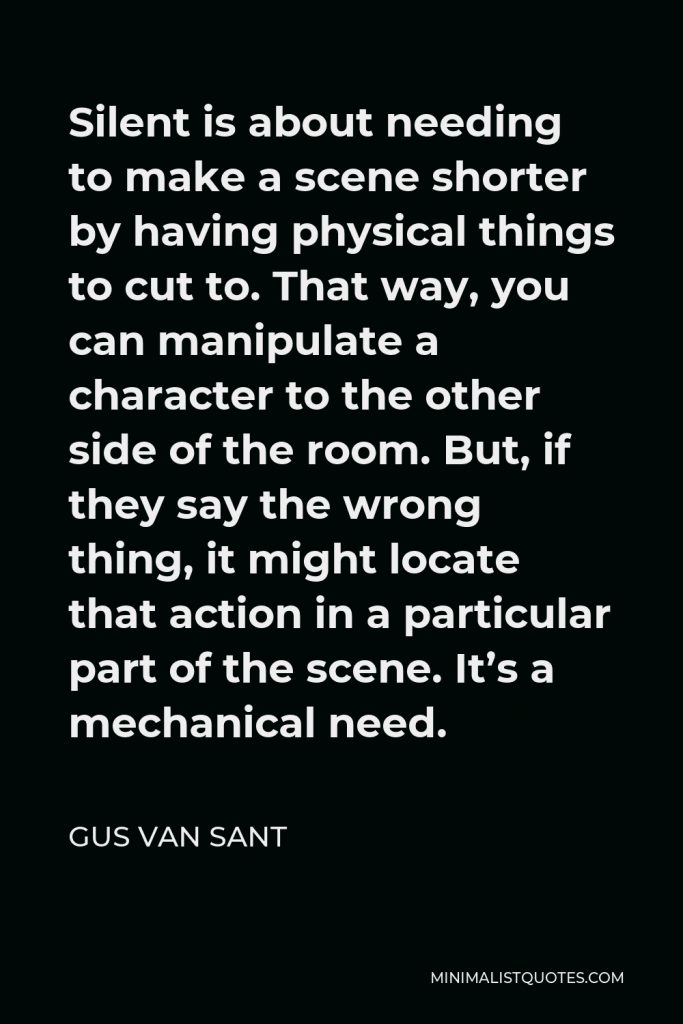

Silent is about needing to make a scene shorter by having physical things to cut to. That way, you can manipulate a character to the other side of the room. But, if they say the wrong thing, it might locate that action in a particular part of the scene. It’s a mechanical need.
GUS VAN SANT -





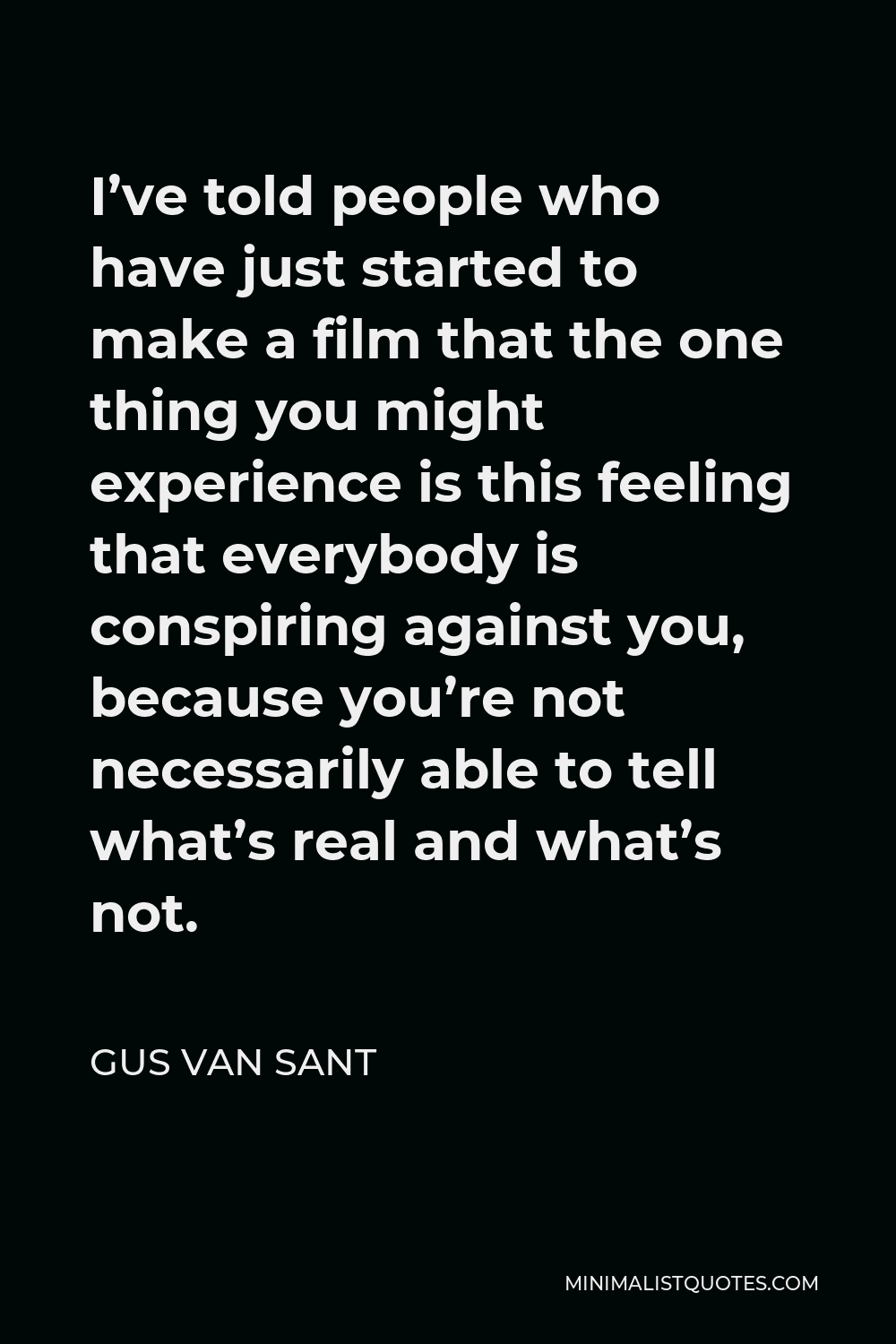
I’ve told people who have just started to make a film that the one thing you might experience is this feeling that everybody is conspiring against you, because you’re not necessarily able to tell what’s real and what’s not.
GUS VAN SANT -






When you’re on a film and you’re doubting something, it’s usually because you don’t think the audience is going to like it.
GUS VAN SANT
